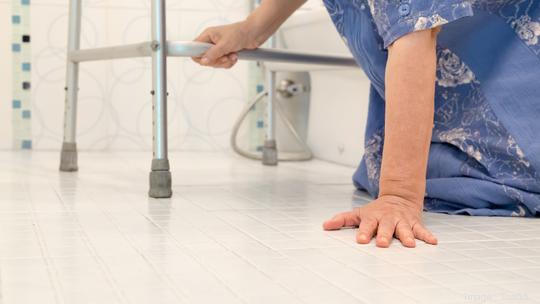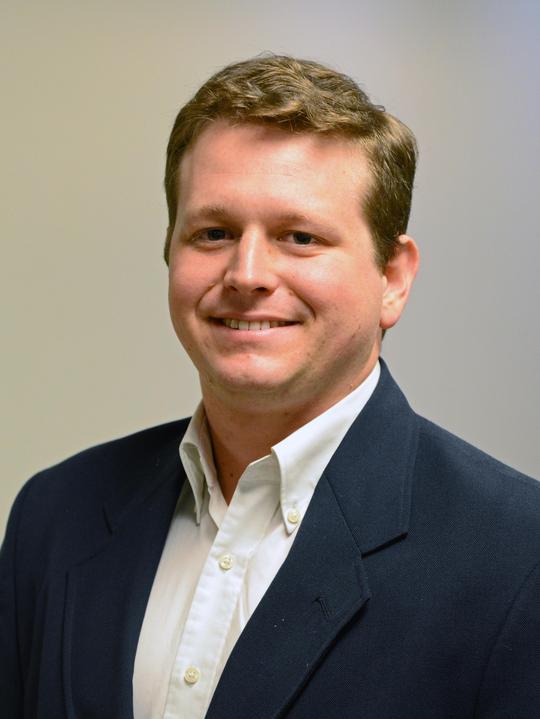
Kinometrix Inc., a Fairfax County startup whose software help hospitals prevent patient falls, is making some big changes and kicking off a funding round to expand nationally.
The company, originally part of Inova Health System’s accelerator until that program shut down in late 2019, is shooting to raise at least $3 million. It hopes to turn its prototype — software that ties into a hospital’s electronic medical records (EMR) system and can predict falls with 99% accuracy — into a product it can sell to hospitals nationwide.
It’s doing so under new leadership: Devina Desai, formerly manager of advancement for Inova, is now president and CEO of Kinometrix. She stepped away from the health system to lead the startup full-time in early 2021, after supporting Inova’s accelerator companies and consulting for Kinometrix since mid-2020. With her appointment, co-founder and former chief Sam Jazzo has transitioned to chairman of the board.

Kinometrix’s route to growth
The new capital would support work Kinometrix is doing with “a huge Texas health system,” Desai said, declining to share specifics. But, she said, that contract would help the business validate its prototype before going to market.
The funding would also support its work with Seattle consulting firm Slalom LLC, which is helping Kinometrix build up its team. That involves bringing on an in-house chief technology officer, data science team and engineers to better integrate the product within hospital EMR systems.
“We’re looking to expand our headcount significantly,” Jazzo said. The three-person company is also planning to tap a chief of information security, technical staff and “lots and lots of sales” employees, he said. It’s aiming for 10 to 15 people by the end of 2022, depending on the number and size of any contracts it locks in.
Inking those deals is the next step. The goal, Desai said, is to ultimately work with health care organizations like Falls Church-based Inova; Columbia, Maryland-based MedStar Health; Roanoke, Virginia-based Carilion Clinic; and Charlottesville-based University of Virginia Health System.
But long-term, Kinometrix wants a bigger piece of the pie, beyond patient falls: It hopes to build software that can help predict when new health conditions may develop in the hospital, from pressure ulcers to blood clots, Jazzo said. “There is a long list of hospital-acquired conditions that [the Centers for Medicare and Medicaid Services] has identified and they won’t pay for, and that the hospital has to bear the risk for," he said. "Our goal is to go after all of them.”

The initial pitch
Kinometrix had started out building a wearable sensor, but scrapped that after concluding it wouldn’t add much benefit, Jazzo said. So now, the software is its bread-and-butter.
It works like this: When a patient is admitted to the hospital, an algorithm draws data from that patient’s medical records and produces a risk score — low, medium, high — based on factors that may put someone at a higher risk of falling, such as medications, Desai said. “The hospital will then institute different interventions to make sure you don’t fall.”
That’s a big deal for health systems, which otherwise rely on their nurses on the ground to mitigate that risk of falling for each patient, she said, sometimes by checking in on rooms on an hourly basis or having sitters stay in their rooms to watch them. Though, it's got its work cut out for it as it vies against an established system, the Johns Hopkins Fall Risk Assessment Tool, a 15-question form that hundreds of health systems use, but Desai said is inevitably subjective. With Kinometrix's tool, she said, “it will now be objective and accurate.”
About a million hospitalized patients fall in the U.S. every year, amounting to $6 billion in medical costs annually, according to the Department of Health and Human Services' Agency for Healthcare Research and Quality.
Kinometrix, now based in Fort Belvoir after moving off of Inova’s Merrifield campus, launched in 2017 with a medical device for physical therapy rehab before pivoting to its current model. The startup has raised about $270,000 in funding to date, including an initial $100,000 from the Center for Innovative Technology and Inova, and another $170,000 from a new investor group that backed the company as Desai assumed the top slot.
The company’s investor base includes Lars Eller of the Washington Capitals and Arlington’s Hammerstone Capital, which is managed by founder Josh Deckard. Dr. Richard Tubb, former physician to the White House, and UrbanStems co-founder Ajay Kori are among its advisers.
The business is still pre-revenue but expects that to change once the new year hits, Jazzo said. “We hope to grow pretty significantly from 2022 on,” he said.




